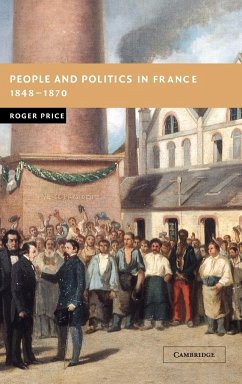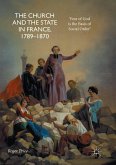Short description/annotation
A study of the counter-revolutionary policies pursued by Louis-Napoleon Bonaparte's regime in France after 1848.
Main description
This book is about politicisation and political choice, in the aftermath of the February Revolution of 1848, and the emergence of democracy in France. The introduction of male suffrage both encouraged expectations of social transformation and aroused intense fear. In these circumstances the election of Louis-Napoleon Bonaparte as President of the Republic - and his subsequent coup d'état - were the essential features of a counter-revolutionary process which involved the creation of a system of democracy as the basis of regime legitimacy and as a prelude to greater liberalisation. The State positively encouraged the act of voting. But what did it mean(?)33; How did people perceive politics(?)33; How did communities and groups participate in political activity(?)33; These and many other questions concern the relationships between local issues and personalities, and the national political culture, all of which impinged on communities increasingly as a result of substantial social and political change.
Table of contents:
Introduction; 1. Dominant classes: the social elites; 2. Coming to terms with 'democracy'; 3. Aspiring social groups: the middle classes; 4. Peasants and rural society: a dominated class(?)33;; 5. Peasants and politics; 6. The formation of a working class; 7. The working class challenge: socialisation and political choice; Conclusion.
Hinweis: Dieser Artikel kann nur an eine deutsche Lieferadresse ausgeliefert werden.
A study of the counter-revolutionary policies pursued by Louis-Napoleon Bonaparte's regime in France after 1848.
Main description
This book is about politicisation and political choice, in the aftermath of the February Revolution of 1848, and the emergence of democracy in France. The introduction of male suffrage both encouraged expectations of social transformation and aroused intense fear. In these circumstances the election of Louis-Napoleon Bonaparte as President of the Republic - and his subsequent coup d'état - were the essential features of a counter-revolutionary process which involved the creation of a system of democracy as the basis of regime legitimacy and as a prelude to greater liberalisation. The State positively encouraged the act of voting. But what did it mean(?)33; How did people perceive politics(?)33; How did communities and groups participate in political activity(?)33; These and many other questions concern the relationships between local issues and personalities, and the national political culture, all of which impinged on communities increasingly as a result of substantial social and political change.
Table of contents:
Introduction; 1. Dominant classes: the social elites; 2. Coming to terms with 'democracy'; 3. Aspiring social groups: the middle classes; 4. Peasants and rural society: a dominated class(?)33;; 5. Peasants and politics; 6. The formation of a working class; 7. The working class challenge: socialisation and political choice; Conclusion.
Hinweis: Dieser Artikel kann nur an eine deutsche Lieferadresse ausgeliefert werden.








